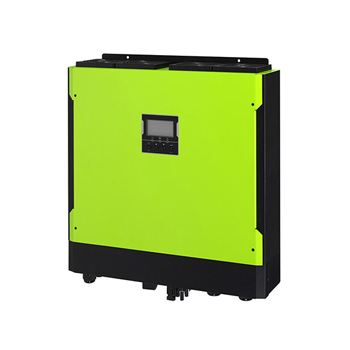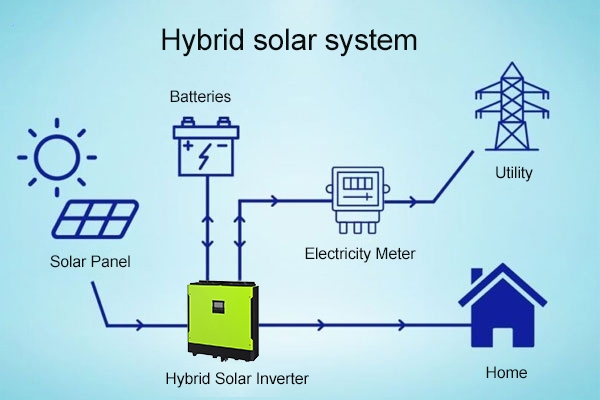Choosing a hybrid solar inverter is an important decision as it directly affects the performance and reliability of the solar system. Hybrid solar inverters are designed to convert the DC power generated by solar panels into AC power that can be used for home or industrial purposes. When choosing a hybrid solar inverter, there are several key factors to consider to ensure that your system will operate efficiently and meet your needs.
The advent of hybrid solar inverters has made solar systems more flexible and intelligent. They help to fully utilize solar energy resources, reduce reliance on the traditional grid, lower energy costs, and reduce greenhouse gas emissions, while also providing greater control over energy and financial returns. In the future, as solar technology continues to evolve and battery technology improves, hybrid solar inverters will play an even more important role in the energy sector, promoting the adoption and popularization of sustainable energy.
Output Power
First, determine the total output power and total power requirements of your solar power system. This includes the total capacity of the solar panels and the maximum power you want the hybrid solar inverter to be able to handle. The rated output power of the hybrid solar inverter must be large enough to meet the power requirements generated by your solar panels. Typically, you need to make sure that the rated output power of your hybrid solar inverter is greater than or equal to the peak capacity of your system, and that the hybrid solar inverter you choose can meet these power requirements to fully utilize your solar system.
Input Voltage Range
Different models of hybrid solar inverters may have different input voltage ranges. Check the operating voltage range of your solar panels and make sure the hybrid solar inverter you choose supports this range. Some hybrid solar inverters have multiple MPPTs to accommodate systems with multiple cells in series. You need to make sure that the input voltage range of the hybrid solar inverter matches the output voltage range of your solar panels. This helps ensure that the hybrid solar inverter will operate properly in all weather conditions.
Output Voltage and Current
Determine the grid voltage and frequency standards for your area, and then choose a hybrid solar inverter whose output voltage and frequency match those standards. This will ensure that your solar system will connect seamlessly to the grid. Ensure that the output voltage and current of the hybrid solar inverter match the requirements of your electrical system to efficiently deliver power to your home grid or battery storage system.
Functions and Features
The efficiency of your hybrid solar inverter is critical to the performance of your system. A more efficient hybrid solar inverter will convert more solar power into usable power, reducing energy losses. Choosing a hybrid solar inverter with high efficiency can reduce energy costs. Hybrid solar inverters often come with a few extra features. Some hybrid solar inverters have built-in monitoring and data acquisition features that allow you to monitor the performance of your solar system in real-time. This is important for identifying and solving problems promptly, so you may want to consider features such as communication interfaces, smart grid capabilities, backup power support, and more. Choose the appropriate features for your needs.

Quality and Reliability
Look for a hybrid solar inverter manufacturer with a good reputation and a long warranty. Solar inverters often need to run for long periods, so choosing a reliable manufacturer reduces the risk of repairs and replacements. Choosing a reliable manufacturer ensures that the hybrid solar inverter you purchase will be able to operate for a long time in different climates.
Installation and Maintenance
Ensure that the hybrid solar inverter you choose is easy to install and compatible with other system components such as battery storage systems, monitoring equipment, and grid connections. Ensure that the selected hybrid solar inverter is compatible with your solar panels, battery storage system, and other components. It is also important to consider the installation and maintenance requirements of hybrid solar inverters; some inverters may require more frequent maintenance, while others are easier to install and maintain.
In the end, choosing a hybrid solar inverter requires a combination of these factors and consultation with a professional solar system installer or engineer to ensure that the inverter you choose is fully compatible with your solar system and can operate reliably under a wide range of conditions. Inverter.com can provide you with a selection of high-quality hybrid solar inverters and professional consulting services. Inverter.com can provide you with high-quality hybrid solar inverters to choose from and professional consulting services, and if you have any problems during installation or use, our professional engineers will provide you with assistance so that you can maximize the performance and reliability of your solar system and have a satisfying experience.
